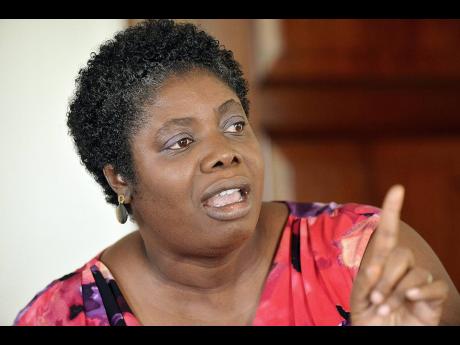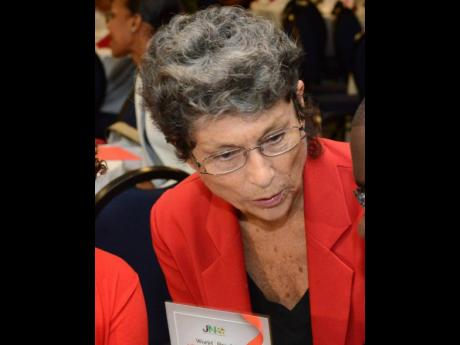Activists agitate for stronger laws to shield women from abuse
Gender advocates are calling for changes in the Domestic Violence Act to strengthen protection for victims of intimate partner violence.
The call comes in light of the circulation of a video in which a man was seen physically assaulting a woman in the vicinity of the courthouse in Half-Way Tree, St Andrew.
In the video, the man, who has now been identified as 32-year-old graphic designer Jovan Stephenson, could be seen kicking and stomping on a woman while verbally assaulting the woman, said to be his estranged partner, as she curled up on the ground by the roadside.
The incident is believed to have taken place on Thursday, minutes after Stephenson and the woman reportedly left on another matter.
Stephenson was on Friday arrested by the police and charged with assault occasioning grievous bodily harm.
He pleaded guilty to the charges in the Kingston and St Andrew Parish Court hours later and was remanded until March 30 for sentencing.
Senior Parish Judge Lori-Anne Cole-Montague also ordered him to pay over $250,000 to the woman for the injuries she sustained in the attack.
Expressing horror at the attack, gender advocate Hilary Nicholson said it highlighted the often helplessness that domestic violence victims face.
“It reminds me how difficult is it for a woman to be able to report domestic violence because when she tries to do something, she is at further risk of violence. If not from the original abuser, sometimes she experiences violence from his family or his friends or his community,” Nicholson told The Gleaner.
She charged that the current legislation is inadequate to protect these victims and does not take into account how complicated the issue really is.
Nicholson argued that a key component missing from the legislation is the provision of social services for victims.
NEED FOR RETHINKING
Under sections Three and Four of the Domestic Violence Act, victims can apply for two orders from the court: an occupation order or a protection order. The occupation order gives someone the right to occupy a home and use household items, while the protection order restricts a person’s contact with any victim.
“The whole area of domestic violence needs to be rethought, taking into account the very complex relationships that exist between people who live in a shared domestic area because there are emotional and financial and even sometimes religious relationships that are very complicated and make it difficult for someone to report,” Nicholson said.
Additionally, she contends that because domestic violence is such a “massive problem”, all local police stations should be equipped with a domestic violence unit.
“While they may be linked to the justice system, and to the Jamaica Constabulary Force, they need to not always be located within a police station because that can make it very difficult for somebody to report,” she further said.
A 2022 report by Caribbean Policy Research Institute (CAPRI) revealed that Jamaica has the second-highest rate of femicide and one of the highest rates of intimate partner violence in the world.
It is why Nicholson is also advocating for harsher penalties for perpetrators of domestic violence.
Meanwhile, pointing to a recent case where a supermarket supervisor who shot and killed his 24-year-old girlfriend in Manchester had his murder charge reduced to manslaughter after he indicated in his caution statement that he was provoked by the victim, gender activist Dr Nadeen Spence said this is a reflection of the society’s tendency to justify intimate partner violence.
“Because the court had accepted that she apparently provoked her murder because she took money from him, so he was apparently justified in killing her. She provoked him,” Spence lamented.
But asserting that there is no justification for intimate partner violence, she told The Gleaner that a message needs to be sent to men who have the inclination to beat women.
She also chided Jamaicans for their seeming acceptance of domestic violence.
“In Jamaica, the society would hear that this man is beating up the woman and you know what people would ask, ‘Weh she do?’ People would begin to share their opinions as to why a man would beat up his wife,” she said.
Last June, Gender Affairs Minister Olivia Grange said that work was advancing on the new Domestic Violence Act with a draft bill already created. It is yet to be passed.


